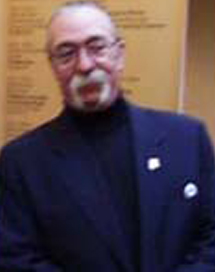Staff
Staff
 Shana Dale, the immediate past Deputy Administrator of NASA, is a recognized senior executive and leader in aerospace policy and in homeland security, and has broad experience in national security. She also has extensive federal government knowledge and experience, and proven abilities navigating the legislative process, White House policy and procedures, and agency operations.
Shana Dale, the immediate past Deputy Administrator of NASA, is a recognized senior executive and leader in aerospace policy and in homeland security, and has broad experience in national security. She also has extensive federal government knowledge and experience, and proven abilities navigating the legislative process, White House policy and procedures, and agency operations.
Serving as second-in-command, she was responsible to the NASA Administrator for providing overall leadership, planning, and policy direction. Ms. Dale, along with the Administrator, led NASA as it undertook the enormous transition from retiring the Space Shuttle to developing the United States’ next human space flight capability. She represented NASA to the White House, U.S. Congress, other U.S. government offices, foreign governments, industry, non-governmental organizations, and the public.
She successfully resolved complex operational problems in all her areas of responsibility, including being Chief Acquisition Officer and overseeing finance, information technology, legal, procurement, international affairs, education, human resources, property, environmental liability, security, strategic messaging, legislative and intergovernmental affairs, communications, equal opportunity, and small business outreach. Ms. Dale initiated cross-functional business operations at the agency for all key strategic initiatives (e.g.: International Space Station, Hubble Space Telescope, aeronautics research) undertaken by NASA resulting in more efficient enterprise-wide management practices. She also immediately addressed improvements to long-standing issues of financial management and information technology, and achieved significant progress on the President’s Management Agenda scorecard, the annual financial audit, and IT systems’ integration across NASA’s ten centers.
Her concern for adequate NASA appropriations and the perceived lack of NASA’s relevance by the American public led her to revitalize legislative strategy, public outreach, and strategic messaging in order to strengthen NASA’s position with Congress, the White House, and the American public. Through her leadership in this effort, NASA officials now speak to groups beyond the traditional aerospace audiences -- broadening outreach with a focus on NASA-related technologies, and how NASA makes major contributions to the nation’s innovative and economic competitive edge.
While serving at the White House, immediately after 9/11, Ms. Dale worked very closely with the newly emerging Office of Homeland Security in the White House to ensure that science and technology became a fundamental tool in efforts to protect the country. Her efforts resulted in her leading the Homeland & National Security Division at the Office of Science and Technology Policy. After the anthrax attacks on U.S. mail, she led the interagency team that developed standards and procedures for irradiation of mail, under enormous time pressure, resulting in a process that successfully neutralized anthrax spores.
She has successfully led offices in the U.S. House of Representatives and White House through periods of major change including transition from minority to majority status in Congress and transition to a new Administration in the White House. She is known for her deep understanding of the inner workings of the U.S. Congress, White House, and NASA. Before joining NASA, Ms. Dale was Deputy Director for Homeland and National Security for the Office of Science and Technology Policy in the Executive Office of the President. She also served over ten years on Capitol Hill including her tenure as Staff Director of the House Subcommittee on Space & Aeronautics.
In recognition for her professional commitment to service, she was a member of the Board of Directors of Women in Aerospace for four years. Ms. Dale has been honored with awards from the National Capital Area Council of the Boy Scouts of America, the Women’s World Awards, the Congressional Black Caucus, and Women in Aerospace.
She received her B.S. with honors in management information systems from the University of Tulsa and her J.D. from California Western School of Law. She is a member of the bars of California and the District of Columbia, and is admitted to practice before the United States Supreme Court. Ms. Dale resides in Washington, DC.
 Dr. Parney Albright is President and CEO of HRL Laboratories, LLC. Dr. Albright joined HRL in 2014 after serving as Director and Associated Director at Large, Lawrence Livermore National Laboratory, and Senior Advisor, Office of the Director of National Intelligence (ODNI), Intelligence Advanced Research Projects Activity (IARPA), on assignment under an Interpersonel Agreement (IPA), where he supported IARPA as well as ODNI senior leadership on a variety of issues.
Dr. Parney Albright is President and CEO of HRL Laboratories, LLC. Dr. Albright joined HRL in 2014 after serving as Director and Associated Director at Large, Lawrence Livermore National Laboratory, and Senior Advisor, Office of the Director of National Intelligence (ODNI), Intelligence Advanced Research Projects Activity (IARPA), on assignment under an Interpersonel Agreement (IPA), where he supported IARPA as well as ODNI senior leadership on a variety of issues.
Before he joined LLNL, Dr. Albright served from August 2005 to November 2009 as President and Vice-Chairman of the Board of Civitas Group, LLC. He led the analytic team in support of the first Quadrennial Homeland Security Review, and in addition, led the development and publication of a comprehensive Biodefense Net Assessment under DHS sponsorship.
In October 2003 Dr. Albright was confirmed by the Senate as Assistant Secretary of Homeland Security in the Department of Homeland Security. He served in that position until July 2005. His responsibilities included developing the multi-year strategic planning guidance and budget execution for the complete portfolio of programs comprising the Science and Technology Directorate. Dr. Albright served as principal scientific advisor to the Secretary of Homeland Security on issues associated with science, technology, and the threat of biological, nuclear, and chemical terrorism. On these issues he served as the Department’s primary representative to other US Government agencies, the Homeland Security Council, the National Security Council, the Office of Science and Technology Policy, and foreign governments.
Between January 2002 and the startup of the Department of Homeland Security, Dr. Albright concurrently held the positions of Senior Director for Research and Development in the Office of Homeland Security and Assistant Director for Homeland and National Security within the Office of Science and Technology Policy. He was the lead official within the White House responsible for providing advice to the Executive Office of the President on science and technology issues surrounding homeland security, and on the threat of biological, nuclear, and chemical terrorism. In July 2002, he was asked to lead the planning for the Chemical, Biological, Radiological, and Nuclear Directorate of the proposed Department of Homeland Security; this later evolved into the Science and Technology Directorate.
Between 1999 and being asked to serve in the White House after the events of September 11, 2001, Dr. Albright worked in the Advanced Technology Office at the Defense Advanced Research Projects Agency (DARPA). While there he developed and managed programs associated with special operations, intelligence collection, molecular biology, communications, and maritime operations.
From 1986 until joining DARPA, Dr. Albright worked at the federally funded Institute for Defense Analyses (IDA). While there, he became an internationally recognized expert on ballistic and cruise missile defense systems; space based infrared and launch detection systems; and weapons and sensor system design and analysis.
He has authored several policy papers for internal or public consumption, primarily in the areas of homeland and national security. He has also been the author of numerous technical publications and briefings, in both the open and classified literature, primarily in the areas of statistical physics, infrared phenomenology; space-based tactical warning and attack assessment systems; intelligence collection systems; and ballistic and cruise missile defense systems.
Dr. Albright received his bachelor’s degree in physics from the George Washington University (1979), and his master’s and doctorate in physics from the University of Maryland (1982 and in 1985 respectively).
Chris Haliday is a Research Fellow with the Center for Emerging Threats and Opportunities (CETO). He joined CETO in June 2012.
Mr. Haliday possesses extensive leadership and management experience in military logistics and operations, both at the staff level and in the field. During his 28-year active duty Marine Corps career, he served in a range of service, joint and combined assignments, including company, battalion and installation command, as well as with the logistic plans and policy staffs of Headquarters Marine Corps, U. S. Central Command and the North Atlantic Treaty Organization. His strengths cover the areas of multifunctional logistics, particularly relating to support of Marine Air-Ground Task Force (MAGTF) operations; transportation and distribution operations; strategic planning and policy development; force structure analysis, design and planning; and installation management, including base operating support, public works, physical security, community services and military support to civil authorities.
Mr. Haliday’s education includes a bachelor’s degree in Economics from Duke University, master's degree in Security Studies from the Marine Corps University and additional graduate work in International Economic Relations at the Paris Institute of Political Studies.
 Patrick joined Madrona Venture Group in 2019 following many years as an investor, scientist, and inventor. He invests in, and helps build, startup companies in a wide variety of technologies and markets.
Patrick joined Madrona Venture Group in 2019 following many years as an investor, scientist, and inventor. He invests in, and helps build, startup companies in a wide variety of technologies and markets.
Prior to Madrona, Patrick was at Intellectual Ventures for more than a decade running startup incubation, seed investing and technology commercialization with a special focus on Asian markets.
Previously Patrick was a Managing Director of ARCH Venture Partners where he funded and built early stage startups for ten years. His investments included Impinj (Nasdaq: PI), and Innovalight (acquired by DuPont).
Before joining the venture capital industry as a Kauffman Fellow in 1998, Patrick held positions with AT&T and Bell Labs. Patrick led engineering projects in software development, speech recognition and network design. He also worked as a product manager in optical networking and a marketing manager for consumer telecom services.
Before joining Bell Labs, Patrick conducted research in Nuclear Physics at government labs in North America and Europe. During this time, he published many articles in scientific journals including The Physical Review, Zeitschrift für Physik and Nuclear Instruments and Methods.
Patrick has served on the boards of 18 venture backed companies, in addition to several non-profit boards. His current memberships include Wipro Ltd and the University of Helsinki Commercialization Board. He is an inventor on several patents, has written about innovation and is a frequent speaker at conferences. He is also the founding CTO of Xinova, an Intellectual Ventures spinout that pioneered an international open-innovation market network.
Patrick holds a PhD, MS, and MPhil in Physics from Yale, an MBA from Wharton, and a BS in Mathematics and Physics from the College of William and Mary where he was elected to Phi Beta Kappa.
Fun Fact:
In the last decade, Patrick has spent more than 1,000 days abroad conducting business in 31 countries and developing relationships with leaders in the technology, corporate and academic worlds.
 JJ Carroll brings much-valued leadership, management, planning, and decision-making skills to the Potomac Institute as a Research Fellow for the Center of Emerging Threats and Opportunities. A career infantry officer with over 30 years in the US Marine Corps. As a Marine Forces Deputy Commander, he led troops around the world, including Europe, Africa, and Korea. As Commander of the Marine Combat Training Battalion and Mountain Warfare Training Center, he is well versed in how to train and educate Marines of all ranks and military occupational specialities. He also served as Chief of Staff of the Counter-IED Operations Integration Center, where he coordinated the staff actions of all "Attack the Network" Counter-IED actions in support of tactical forces deployed to Iraq and Afghanistan. In all of these positions, he has grown accustomed to leading and supervising hundreds of personnel to a common goal. After graduating from UNC Chapel Hill with a degree in Biology, he went on to earn a Master of Arts in National Security and Strategic Studies from the Naval War College and a Master of Science in Strategic Studies from the Air War College.
JJ Carroll brings much-valued leadership, management, planning, and decision-making skills to the Potomac Institute as a Research Fellow for the Center of Emerging Threats and Opportunities. A career infantry officer with over 30 years in the US Marine Corps. As a Marine Forces Deputy Commander, he led troops around the world, including Europe, Africa, and Korea. As Commander of the Marine Combat Training Battalion and Mountain Warfare Training Center, he is well versed in how to train and educate Marines of all ranks and military occupational specialities. He also served as Chief of Staff of the Counter-IED Operations Integration Center, where he coordinated the staff actions of all "Attack the Network" Counter-IED actions in support of tactical forces deployed to Iraq and Afghanistan. In all of these positions, he has grown accustomed to leading and supervising hundreds of personnel to a common goal. After graduating from UNC Chapel Hill with a degree in Biology, he went on to earn a Master of Arts in National Security and Strategic Studies from the Naval War College and a Master of Science in Strategic Studies from the Air War College.
 Dr. Dennis McBride joined the Institute as its Executive Vice President in April 2001, a position he held until assuming the presidency from 2001 to 2009, and now serves as President Emeritus and Fellow. Dr. McBride is an affiliated professor at the Georgetown University Public Policy Institute (teaching four courses and supervising graduate research), and the Georgetown University Medical Center (teaching four courses and supervising research). He was formerly Co-Editor of the peer reviewed journal, Technology; he was formerly the Editor in Chief of Review of Policy Research.
Dr. Dennis McBride joined the Institute as its Executive Vice President in April 2001, a position he held until assuming the presidency from 2001 to 2009, and now serves as President Emeritus and Fellow. Dr. McBride is an affiliated professor at the Georgetown University Public Policy Institute (teaching four courses and supervising graduate research), and the Georgetown University Medical Center (teaching four courses and supervising research). He was formerly Co-Editor of the peer reviewed journal, Technology; he was formerly the Editor in Chief of Review of Policy Research.
As President of the Institute, Dr. McBride led technical programs, including significant support to the Defense Advanced Research Projects Agency (DARPA), the Office of Naval Research (ONR), the National Science Foundation (NSF), and the National Academies of Science/National Research Council (NAS/NRC), as well as to pharmaceutical and ergonomics industries. Dr. McBride was previously the Executive Director, Institute for Simulation and Training, University of Central Florida, elected by the faculty to Professor, with dual appointments in the College of Engineering and Computer Science (home of tenure), and in the Department of Psychology, College of Arts and Sciences. Professor McBride was also a member of the Burnette Honors College teaching faculty.
Dr. McBride completed a 20-year Naval career at the grade of Captain (O-6), Medical Service Corps, as a Naval Aerospace Experimental Psychologist, and flight test engineer. Earning gold wings in 1980, his tours included bench-to-management science and technology at five Navy laboratories, three major headquarters organizations (including ONR and the Navy Medical Research and Development Command), and two joint assignments. Duties took him from human engineering of extremely skilled human performance in the problem domains of anti-submarine, electronic, air-to-air, and counter-mine, to information warfare. He served as program manager at DARPA from 1989 until 1994. There, he managed national-level modeling and simulation (M&S) programs in excess of $100 million, and he initiated the first approved Office of the Secretary of Defense Advanced Concepts Technology Demonstration (ACTD), known as Synthetic Theatre of War. Dr. McBride served as acting program manager for the X-31 variable thrust-vectoring experimental test aircraft program. He directed technical components of two additional policy-driving ACTDs. He established the Department of Defense’s (DoD) Joint effort in Advanced Distributed Learning (ADL), founding its Joint Co-Laboratory in 1999. He served as the head of the corps of Aerospace Experimental Psychologists as a collateral assignment from the office of the Surgeon General of the Navy.
Dr. McBride’s formal education includes enrollment at the University of Georgia, University of Southern California, and the London School of Economics. He holds a Ph.D., three Master’s of Science degrees, a Bachelor of Science degree, and an MPA. Trained as a flight test engineer at the University of Tennessee Space Institute under the sponsorship of the Navy’s Test Pilot School, Dr. McBride was selected by the Navy as a mission specialist astronaut candidate. He was a summer resident scholar at the Santa Fe Institute. Professor McBride holds professional credentials from the Board of Certification in Professional Ergonomics, and in Professional Modeling and Simulation from the National Training Systems Association.
Dr. McBride is or has been a member of several editorial boards, including the International Journal for Human Computer Interaction, Theoretical Issues in Ergonomics, Behavioral and Brain Science, and reviewer for several other journals. He was formerly a Director, Board of Certification in Professional Ergonomics; Member, Executive Oversight Council, M&S Professional Certification Commission; and member of the Steering Committee, Human Systems Information Analysis Center, among other board positions, such as Executive Advisory Panel, Institute for Creative Technology, University of Southern California. He is a member of the advisory boards for the Atlantic Legal Foundation and the Institute for Trade and Sustainable Standards Development. He has advised many universities on strategies for enhancing research portfolios, and he has provided extensive subject matter expertise in judicial matters for civil and criminal cases, to include the U.S. Supreme Court. His most recent academic product is the book, Quantifying Human Information Processing (Rowman-Littlefield).
Dr. McBride has received numerous awards and military decorations including Defense Superior Service Medal and the Legion of Merit. Among his civilian awards is the L.P. Coombes Medal, presented by the Australian Institution of Engineers. He has published, presented and edited more than 125 scientific articles, technical reports, and book chapters in the fields of psychobiology, experimental psychology, medical and pharmacological research, engineering science, operations research, complexity science, political science, and public policy. His works have formed the technical basis of litigation heard before the United States Supreme Court, and have been reported in a diversity of popular media, including Business Week, Omni, Health, New Scientist,Chronicle of Higher Education, ABC News, CBS Sixty Minutes, New York Times, Los Angeles Times, and the Washington Post.
 Jeffrey Baxter is currently a consultant/contractor for a number of US Government agencies and advises military, government, defense contractors and civilian groups on missile defense, terrorism & counter-terrorism, cyber-warfare, intelligence, virtual reality, war gaming, next-generation technologies and unconventional strategies. He is a member of the Director's Strategic Red Team at MIT/ Lincoln Laboratories, a consultant for the Global Security Sector of the Lawrence Livermore National Laboratory and a Senior Thinker for the Institute For Human & Machine Cognition.
Jeffrey Baxter is currently a consultant/contractor for a number of US Government agencies and advises military, government, defense contractors and civilian groups on missile defense, terrorism & counter-terrorism, cyber-warfare, intelligence, virtual reality, war gaming, next-generation technologies and unconventional strategies. He is a member of the Director's Strategic Red Team at MIT/ Lincoln Laboratories, a consultant for the Global Security Sector of the Lawrence Livermore National Laboratory and a Senior Thinker for the Institute For Human & Machine Cognition.
 Dr. Jennifer Buss serves as the CEO of the Potomac Institute for Policy Studies. We develop meaningful science and technology policy options through discussions and forums and ensure their implementation at the intersection of business and government. She has extensive experience examining policy issues in support of NASA, and has been involved in their strategic planning processes for astronaut medical care and cancer diagnostics and therapeutics. She manages a variety of OSD programs including an outreach effort for the Department of Defense to the start-up community across the country to find innovative technologies to meet the challenges faced by the Services and Government agencies. Dr. Buss performs science and technology trends analysis and recommends policy solutions to some of the country’s most pervasive problems. She has also directed and assisted research on numerous government contracts, including systematic reviews and gap analyses. Dr. Buss is an authority in her scientific field with national recognition in her area of expertise. She is responsible for major projects requiring integration/coordination across multiple scientific disciplines.
Dr. Jennifer Buss serves as the CEO of the Potomac Institute for Policy Studies. We develop meaningful science and technology policy options through discussions and forums and ensure their implementation at the intersection of business and government. She has extensive experience examining policy issues in support of NASA, and has been involved in their strategic planning processes for astronaut medical care and cancer diagnostics and therapeutics. She manages a variety of OSD programs including an outreach effort for the Department of Defense to the start-up community across the country to find innovative technologies to meet the challenges faced by the Services and Government agencies. Dr. Buss performs science and technology trends analysis and recommends policy solutions to some of the country’s most pervasive problems. She has also directed and assisted research on numerous government contracts, including systematic reviews and gap analyses. Dr. Buss is an authority in her scientific field with national recognition in her area of expertise. She is responsible for major projects requiring integration/coordination across multiple scientific disciplines.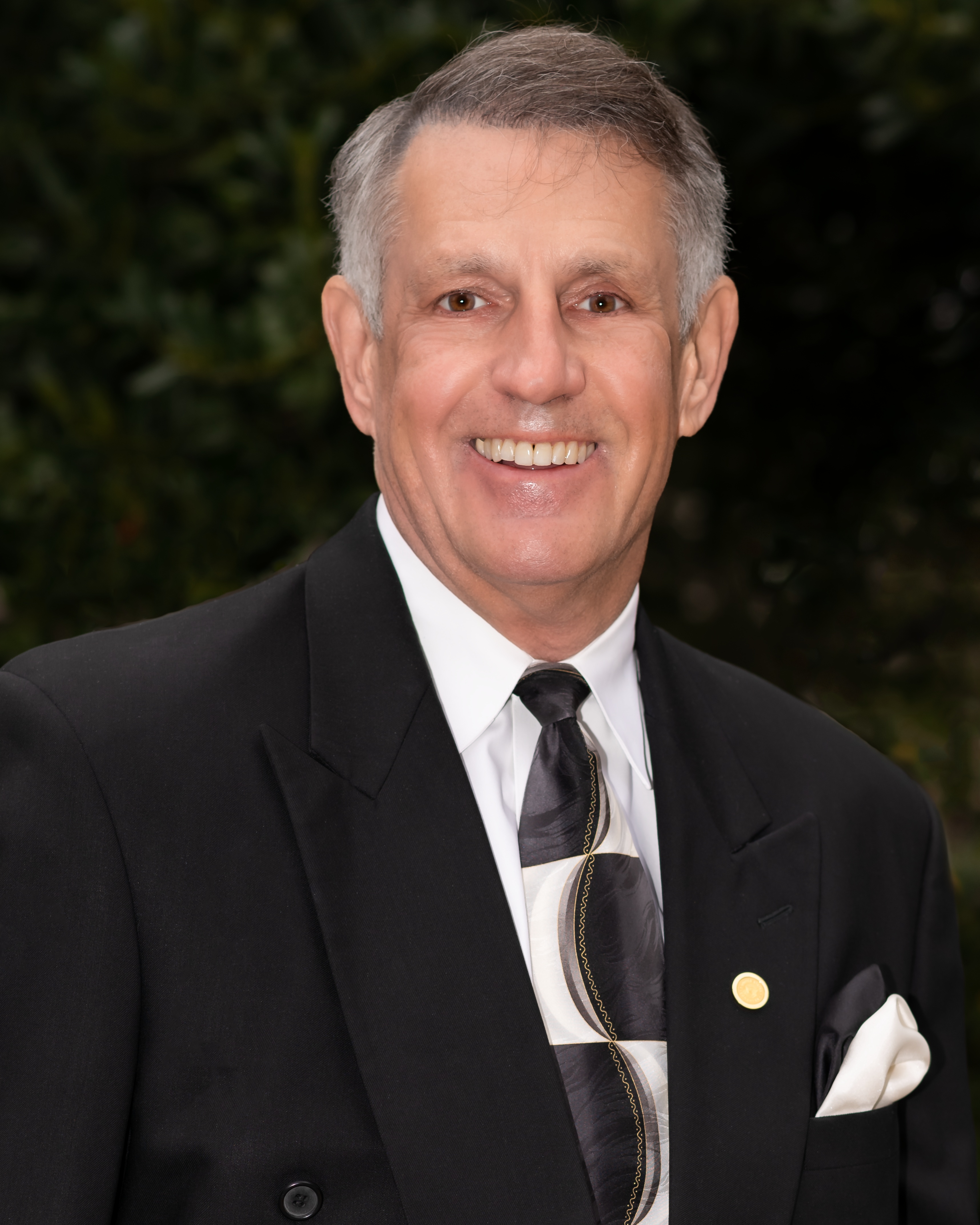 Gary Sojka is a partner of The Potomac Advocates, a Washington, D.C. consulting firm. He concentrates on a wide array of issues related to technology and government policy. Prior to this move into the consulting world, Mr. Sojka served as a professional staff member of the U.S. Senate for eight years, including positions on the Senate Select Committee on Intelligence and the Senate Armed Services Committee. From 1992 to 1994 he held the position of Deputy to the Minority Staff Director on the Intelligence Committee. Mr. Sojka also has vast experience with strategic defense and intelligence, having acted as a defense analyst for both the Defense Intelligence Agency and the Office of Naval Intelligence.
Gary Sojka is a partner of The Potomac Advocates, a Washington, D.C. consulting firm. He concentrates on a wide array of issues related to technology and government policy. Prior to this move into the consulting world, Mr. Sojka served as a professional staff member of the U.S. Senate for eight years, including positions on the Senate Select Committee on Intelligence and the Senate Armed Services Committee. From 1992 to 1994 he held the position of Deputy to the Minority Staff Director on the Intelligence Committee. Mr. Sojka also has vast experience with strategic defense and intelligence, having acted as a defense analyst for both the Defense Intelligence Agency and the Office of Naval Intelligence.
 Mr. Montgomery has served since 2001 as a Senior Fellow at the Potomac Institute for Policy Studies. He was, from 2003-2008, the Executive Director of the Institute for Defense and Homeland Security, with emphasis on energy independence, biodefense, telecommunications, remote presence, sensor systems, risk management and crisis management Research and Development (R&D). He served also as a member of the Defense Science Board Task Force on Energy Strategy. He has focused his recent efforts on two strategic goals: (1) national energy security/energy independence; and (2) reinvigoration of the national Science and Technology base and Research and Development infrastructure. His book “Bureaucratic Nirvana – Life in the Center of the Box,” which discusses the inner workings of the federal R&D system, was published in October 2010.
Mr. Montgomery has served since 2001 as a Senior Fellow at the Potomac Institute for Policy Studies. He was, from 2003-2008, the Executive Director of the Institute for Defense and Homeland Security, with emphasis on energy independence, biodefense, telecommunications, remote presence, sensor systems, risk management and crisis management Research and Development (R&D). He served also as a member of the Defense Science Board Task Force on Energy Strategy. He has focused his recent efforts on two strategic goals: (1) national energy security/energy independence; and (2) reinvigoration of the national Science and Technology base and Research and Development infrastructure. His book “Bureaucratic Nirvana – Life in the Center of the Box,” which discusses the inner workings of the federal R&D system, was published in October 2010.
Mr. Montgomery served for 16 years on the staff of the Chief of Naval Operations (N091B). As the Department of Navy (DON) senior career civilian for Science and Technology requirements and resources, he was Resource Sponsor of a $3B R&D account, including the programs executed by the Office of Naval Research. Responsibilities included requirements development, strategic planning, program guidance, policy, investment strategy and program assessment. He was the creator of Advanced Technology Demonstrations (ATDs) for technology transition and an original architect of the current Future Naval Capabilities planning process. He was instrumental in expanding the Naval ATD concept into Department of Defense Advanced Concept Technology Demonstrations (ACTDs). He served as the DON principal career civilian official for S&T program interface and program justification to DOD and Congress.
Mr. Montgomery served for two years as the first civilian Technical Director of the Marine Corps Warfighting Laboratory, with broad oversight of USMC initiatives in technology development and transition, warfighting experiments, emerging threats and opportunities and wargaming. He was the senior Marine Corps civilian official for oversight and assessment of the $100M USMC Science and Technology investment.
Mr. Montgomery served for four years on the senior staff of the Office of Naval Technology. As Director of Planning and Programming, he developed the initial Planning, Programming and Budgeting System and the first strategic plan for Naval Applied Research. He was the first DON Industry Independent Research and Development (IR&D) Manager, and created and managed the system for oversight and assessment of the multi-billion dollar industry IR&D investment. Earlier senior assignments include: Director of Research, Naval Sea Systems Command; Deputy Director, Explosives Division, Naval Surface Warfare Center (NSWC); Head Technology Branch, NSWC.
Mr. Montgomery received a BS Degree in Physics and Mathematics from Mississippi College, graduating first in the Class of 1966 with a 4.0 GPA. He received an MS Degree in Physics in 1969 at the University of Tennessee. His Physics Ph.D. was completed but not formally awarded, after two dissertation topics each became classified. He is also an International Security Policy graduate of the Kennedy School of Harvard University and an alumnus of the Federal Executive Institute.
Mr. Montgomery lectures frequently on national and international Science and Technology policy. He has published and lectured extensively as an authority on Research and Development, energy, explosives and reactive and incendiary materials.
Mr. Montgomery was the first person to receive the Distinguished Civilian Service Award twice, the highest Navy civilian award. He has received also the Presidential Meritorious Executive Award, Superior Civilian Service Award (second-highest Navy award), Secretary of Defense Commendation and numerous other Senior Executive Service performance awards. He holds six technical patents.
Active in his community, Mr. Montgomery is experienced in transportation, land use and regional development issues. A certified planner, he served for 12 years on the Spotsylvania County Planning Commission, as well as on multiple regional committees. He is appointed currently to the Virginia Commission on Energy and Environment and the Transportation Accountability Commission. An active member of Ferry Farm Baptist Church, he serves as a deacon, choir member, musician and teacher. He conducts a Christian music ministry as a singer and musician. He and Mitzie have been married since 1966 and have two daughters, Melinda Montgomery-Wiegers (Head, Warfighting Assessment Branch, Office of the Chief of Naval Operations) and Michelle Montgomery Pettit (Assistant U.S. Attorney and Naval Reserve Commander) and grandchildren Katie and Jackson Wiegers and Andrew and Lauren Pettit.
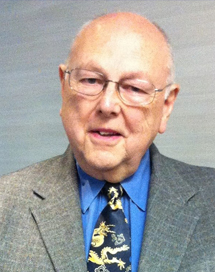 Howard Schue is a Partner and Executive Vice President of Technology Strategies and Alliances Corporation specializing in line and marketing management, new business development, and strategic planning in the aerospace/defense and the command, control, communications and intelligence (C3I) industries. Mr. Schue served on the 1993 Defense Science Board Summer Study on Global Surveillance and on the 1994 Summer Study on Information Architecture for the Battlefield. He is a member of the American Institute of Aeronautics and Astronautics, The Armed Forces Communications and Electronics Association, the National Military Intelligence Association, the American Society of Military Comptrollers, the Air Force Association, the Association of Old Crows, the Reserve Officers Association, the Air War College Alumni Association, the Planetary Society, the West Point Association of Graduates, and the Army Athletic Association.
Howard Schue is a Partner and Executive Vice President of Technology Strategies and Alliances Corporation specializing in line and marketing management, new business development, and strategic planning in the aerospace/defense and the command, control, communications and intelligence (C3I) industries. Mr. Schue served on the 1993 Defense Science Board Summer Study on Global Surveillance and on the 1994 Summer Study on Information Architecture for the Battlefield. He is a member of the American Institute of Aeronautics and Astronautics, The Armed Forces Communications and Electronics Association, the National Military Intelligence Association, the American Society of Military Comptrollers, the Air Force Association, the Association of Old Crows, the Reserve Officers Association, the Air War College Alumni Association, the Planetary Society, the West Point Association of Graduates, and the Army Athletic Association.
 Paul Gido is currently the Senior Consultant for R. Phillips Enterprises Incorporated, a veteran owed small business. Mr. Gido’s areas of expertise include Marine Air Ground Task Force (MAGTF) Operations, C4I, Digital Interoperability, and Science and Technology. He directly supports Headquarters Marine Corps, Aviation Department’s digital interoperability efforts working closely with the Naval Research Laboratory on the Software Reconfigurable Payload (SRP), a critical component of the MAGTF Agile Network Gateway Link (MANGL) program.
Paul Gido is currently the Senior Consultant for R. Phillips Enterprises Incorporated, a veteran owed small business. Mr. Gido’s areas of expertise include Marine Air Ground Task Force (MAGTF) Operations, C4I, Digital Interoperability, and Science and Technology. He directly supports Headquarters Marine Corps, Aviation Department’s digital interoperability efforts working closely with the Naval Research Laboratory on the Software Reconfigurable Payload (SRP), a critical component of the MAGTF Agile Network Gateway Link (MANGL) program.
Upon his retirement from the United States Marine Corps, Mr. Gido joined the Potomac Institute in June 2002. He was sub sequentially detailed from the Institute to the Office of Naval Research. Mr. Gido served as the Assistant Vice Chief of Naval Research, under the Intergovernmental Personnel Act (IPA) mobility assignment from October 2002 to October 2014. He provided full time support to the Vice Chief of Naval Research in exercising his duties and responsibilities. He assisted the Vice Chief in supporting the Chief of Naval Research’s execution of the Naval Science and Technology program, and conducted technical and programmatic reviews of Marine Corps Science and Technology programs under the Office of Naval Research cognizance. He was the driving force in developing the initial version of the Naval S&T Strategy and 3 subsequent editions. Mr. Gido represented the Vice Chief in numerous internal and external forums and ensured the flow of critical information between the Office of Naval Research and the senior leadership of the Marine Corps.
While on active duty Mr. Gido served his last four years as the Executive Assistant to the Deputy Commandant for Programs and Resources, Headquarters Marine Corps and has a total of nine years work experience in the Planning Programming Budgeting Execution. He was assigned to the professional staff of the congressionally chartered Commission on the Roles and Missions of the Armed Forces. He commanded a direct support artillery battalion in combat and subsequently commanded the Marine Corps’ largest artillery regiment. Mr. Gido has considerable high-level staff experience and has worked critical and sensitive actions with the OSD Staff, Joint Staff, DoN Secretariat, OPNAV and Marine Corps staffs. He served as the Military Assistant to the Secretary of the Navy.
Mr. Gido earned a BS in Business Administration (Magna Cum Laude) from Villanova University and an MS in Management (With Distinction) from the Naval Postgraduate School. He was a National Security Program Fellow at the John F. Kennedy School of Government, Harvard University.
Mr. Gido areas of expertise include: Science and Technology Policy, Strategic Planning, Force Structure Analysis, Planning Programming and Budgeting Execution (PPBE) system, MAGTF Operations, Humanitarian Operations, Fire Support, and Leadership.
Lyle Ashton Cox, Jr. is Chief Scientist of Information Manufacturing Corporation. He has over thirty years of experience in high performance information systems in a wide variety of application environments. He has held a number of senior positions in information technology enterprises, including: MASINT Chair Research Professor, Naval Postgraduate School; Chief Architect, United States Measurement and Signature Intelligence System, Defense Intelligence Agency; Vice President, Corporate Development, Analytic Services Incorporated; Vice President and Chief Technical Officer, Science Applications International Corporation's Technology Applications Sector; Deputy Group Manager of Digital Equipment Corporation's Government Systems Group; Assistant Director, White House Office of Planning and Evaluation; and Director of the National Security Council Crisis Management System. Dr. Cox served in the United States Navy, rising to the rank of Captain. He also served as consultant to several state and local law enforcement agencies, lecturer (with rank of full professor) at George Washington University, and member of NASA's Advisory Committee on the International Space Station. He currently serves on the Board of Advisors of Potomac State College. Dr. Cox earned a Ph.D. in Computing Science at the University of California, and has also earned degrees in engineering, law, and astronomy. Dr. Cox is an active member of the Chickasaw Nation.
 Jamie Barnett, RDML USNR (Ret.) is a Senior Fellow at the Potomac Institute for Policy Studies. RDML Barnett has over thirty years of experience in the U.S. Navy and a distinguished career in private law practice. From 2009-2012, he served in an IPA assignment as Chief of the Federal Communications Commission's Public Safety and Homeland Security Bureau (PSHSB). He previously served as a Senior Research Fellow of the Institute.
Jamie Barnett, RDML USNR (Ret.) is a Senior Fellow at the Potomac Institute for Policy Studies. RDML Barnett has over thirty years of experience in the U.S. Navy and a distinguished career in private law practice. From 2009-2012, he served in an IPA assignment as Chief of the Federal Communications Commission's Public Safety and Homeland Security Bureau (PSHSB). He previously served as a Senior Research Fellow of the Institute.
At the FCC, RDML Barnett was active in promoting cybersecurity initiatives and advancing emergency communications capabilities, including seminal work on the public safety broadband network. He created the Cybersecurity and Communications Reliability Division within PSHSB which achieved significant results in March, 2012 when the Division’s Communications Security, Reliability and Interoperability Council (CSRIC) announced three voluntary cybersecurity measures for Internet service providers (ISP), including a new ISP Code of Conduct to reduce botnets, implementation best practices for securing the Domain Name System, and creating a authoritative registry for Internet addresses to reduce Internet route hijacking. Moreover, he worked to get ISPs to adopt the three measures that will cover almost 90% of all American Internet users. RDML Barnett proposed the first nationwide test of the Emergency Alert System, which was conducted on November 9, 2011, and he laid the groundwork for a Next Generation 911 system.
A Rear Admiral (lower half) in the Navy Reserve, he served on active duty as Director of Navy Education and Training in the Pentagon during the crucial overhaul of the Navy’s Manpower, Personnel, Training and Education organization. He led a task force on developing a Navy Education Strategy and served on the Board of Advisors for the Naval Postgraduate School. His most recent active duty assignments include Acting Deputy Director of Expeditionary Warfare and Acting Deputy Director of Surface Warfare on the staff of the Chief of Naval Operations. His last active duty assignment was Deputy Commander of the Navy Expeditionary Combat Command in Little Creek, Virginia, which provides leadership of Explosive Ordnance Disposal, the Seabees, Naval Coastal Warfare, Mobile Diving and Salvage, Maritime Expeditionary Security Forces and Riverine Forces.
In 2001, then-Captain Barnett was recalled to active duty in Washington, D.C. to serve as a change manager and project lead in the Navy’s Revolution in Training (Task Force EXCEL), chartered to revolutionize the Navy’s training establishment, inject the science of learning, and create learning centers of excellence. He played a leadership role in designing the new training organization, including the Navy Personnel Development Command, the Center for Naval Leadership and the Human Performance Center. He was subsequently given command of the Center for Personal Development, charged with the responsibility for delivering college education to Navy members worldwide as well as training in ethics, diversity, finance, fitness, among others. He was awarded the first of four Legion of Merit medals for his work there.
RDML Barnett’s Navy career has focused on the Middle East and Africa ever since his first deployment there aboard USS JONAS INGRAM (DD-938) in 1977. He served as Executive Officer of the Military Sealift Command Office in Ad Dammam, Saudi Arabia during OPERATION DESERT SHIELD/DESERT STORM, and he later commanded Military Sealift Command units dedicated to the North and South Persian Gulf areas. His other commands include Mobile Inshore Undersea Warfare Unit 207, a Naval Coastal Warfare unit based in Jacksonville, Florida.
In civilian life, RDML Barnett advised and represented thousands of governmental officials and entities as an attorney, in the board room and in state and federal court during eighteen years of private practice. His clients included cities, counties, school districts, law enforcement agencies and development authorities, providing legal and policy advice on a range of topics, including constitutional law, governmental liability, personnel and employment law, education and school law, policy development, legislation, procurement, and ethics. He was a board attorney for several school districts, and has served as the President of the Council of School Board Attorneys in Mississippi. He received the statewide Exceptional Service Award for his work for the Pro Bono Project, and he was named the state’s Outstanding Young Lawyer of the Year in 1989. He has presented continuing legal education seminars in constitutional law, school law and ethics.
RDML Barnett received his Juris Doctor from the University of Mississippi School of Law in 1984, where he was named the Dean Parham Williams Outstanding Student and served as Chairman of the Moot Court Board. He also served as the National Director of the ABA’s National Appellate competition.
He enjoys drawing on his experience in constitutional law, school law, policy development, expeditionary warfare, strategy and planning, state and local government, education, and training.
 John J. Young, Jr.,Member, Board of Directors, Board of Regents, and Senior Fellow.
John J. Young, Jr.,Member, Board of Directors, Board of Regents, and Senior Fellow.
The Honorable John Young is a former Under Secretary of Defense for Acquisition, Technology and Logistics. Mr. Young’s distinguished career includes past positions as Director, Defense Research and Engineering (DDR&E); and Assistant Secretary of the Navy for Research, Development, and Acquisition (ASN(RDA)). Prior to these Senate-confirmed positions, Mr. Young served ten years as a professional staff member of the Senate Defense Appropriations Committee, Subcommittee on Defense.
Andy is a Research Fellow with the Center for Emerging Threats and Opportunities (CETO). He joined the CETO team in October 2014 after retiring from the Marine Corps with 30 years of service. Andy was designated as an Infantry Officer.
Command tours have included platoon command in 2d Battalion (Bn), 8th Marines and 2d Bn, 2d Marines, company command in 2d Bn, 7th Marines and battalion command in 2d Bn, 4th Marines and 2d Bn, 3rd Marines. Additionally, he commanded the Marine Corps’ Training Command and the 31st Marine Expeditionary Unit. He has participated in a combat deployment as part of Operation Enduring Freedom (OEF), plus disaster relief missions in the Philippines and as part of operation Tomodachi in Japan.
In addition to his command time, Andy was a staff platoon commander and tactics instructor at The Basic School. He served as an instructor and the Associate Chairman of the Physics Department at the United States Naval Academy. Staff tours have included time with the III Marine Expeditionary Force Operations, Operations Officer for the 31st MEU, Ground Advocate for Headquarters Marine Corps and the deputy commander at the Marine Corps Warfighting Lab.
Andy holds a BS degree in Petroleum and Natural Gas Engineering from Penn State, and Master’s Degrees from The Naval Postgraduate School in Applied Physics and the National War College in National Security Strategy.
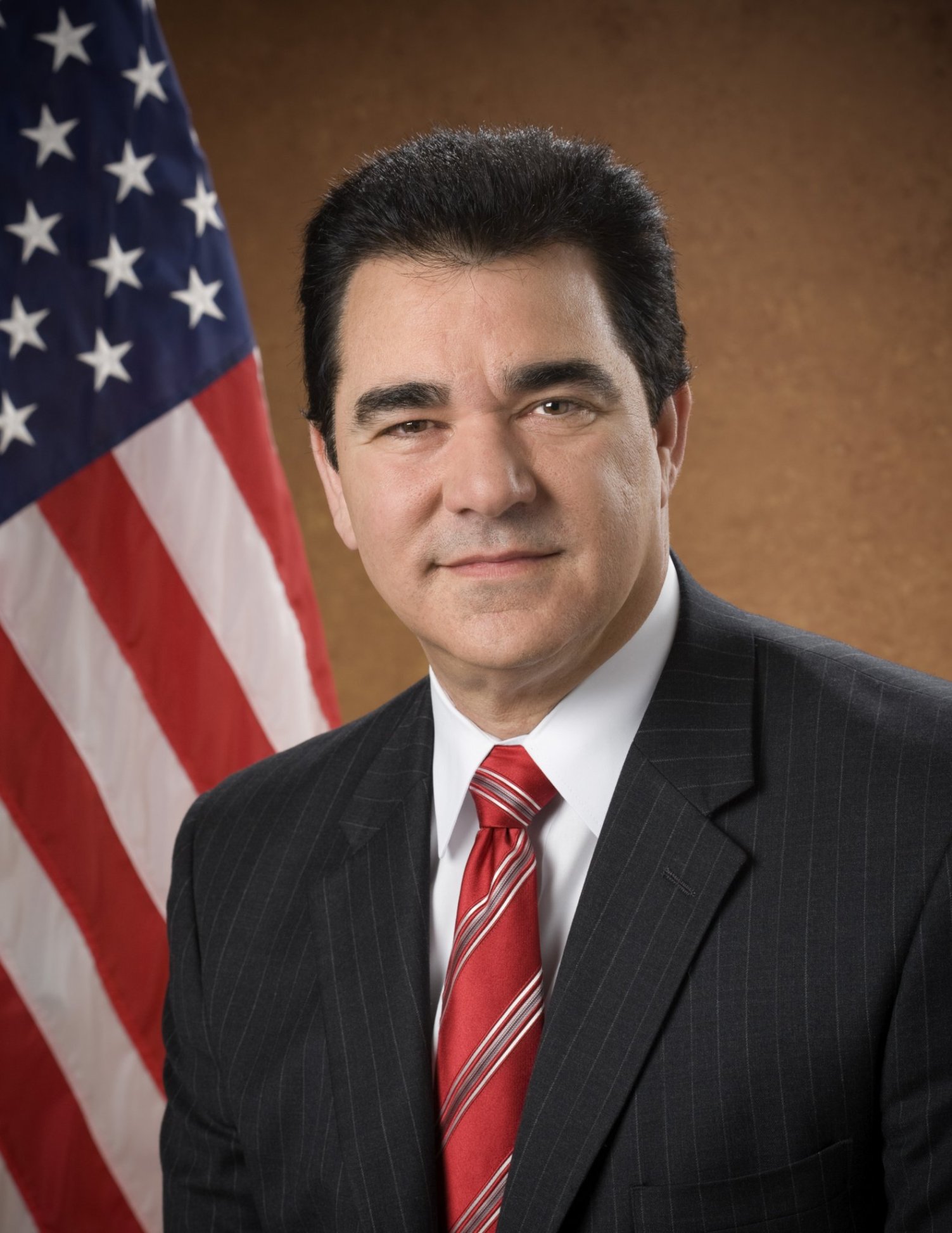 Ted J. Glum is the former Director of the US Defense Microelectronics Activity (DMEA), serving in that capacity from its inception in 1996 to his retirement in 2018. As the Director, Mr. Glum reported to the Assistant Secretary of Defense for Research and Engineering, (ASD (R&E)), and was responsible for over $2 Billion of microelectronics technology programs in addition to numerous classified programs for the Department of Defense (DoD) and Intelligence Community.
Ted J. Glum is the former Director of the US Defense Microelectronics Activity (DMEA), serving in that capacity from its inception in 1996 to his retirement in 2018. As the Director, Mr. Glum reported to the Assistant Secretary of Defense for Research and Engineering, (ASD (R&E)), and was responsible for over $2 Billion of microelectronics technology programs in addition to numerous classified programs for the Department of Defense (DoD) and Intelligence Community.
DMEA provides a vital service to acquisition programs and operational fielded systems including field modification, upgrade, transition and support; and advancing microelectronics research, development, technologies, and applications to achieve the Department’s tactical, strategic and national security objectives. DMEA capabilities include a one-of-a-kind flexible foundry which enables DMEA to provide critical parts for intelligence, special operations, and combat missions as well as providing parts that are unobtainable in the commercial market. As such it serves the DoD, other US Agencies, industry and Allied nations and has been designated as a Critical National Resource by the US Government.
Prior to assuming the duties of the Director for DMEA, he served as the Chief of the Science and Engineering Division within the US Air Force Material Command (1994-1996). In this capacity, he was responsible for the Air Force’s Advanced Microelectronics Program, Advanced Composites Program, Electro-optics Program, and the Physical Science Special Testing Program.
Among his accomplishments and awards are the Federal Laboratory Director of the Year, Exemplary Civilian Service Medal, the Air Force Science and Technology Award, and the Air Force Engineer of the Year award.
He is a graduate of California State University where he received a Bachelor of Science degree in Electrical and Electronics engineering. He has participated in a variety of educational programs including the Executive Development Program on Science, Technology and Public Policy.
 Mr. Michael Hoglund, PMP, currently provides strategic planning assistance to the Naval Surface Warfare Center, Indian Head Explosive Ordnance Disposal Technology Division (NSWC IHEODTD). This assignment varies broadly from the development of new strategic goals and objectives, implementation of non-traditional systems aimed at spurring innovative solutions, to the development of new business areas and partnerships. Our nation has accepted risk in our energetics based weapons system development over the past several decades with our superiority rapidly declining compared to potential competitors. Mr. Hoglund is helping lead a campaign to reenergize naval energetics RDT&E to ensure the Department of Defense intelligently invests in systems that will keep our nation safe for the future. He brings a lengthy history of government S&T and R&D program management for multiple DoD and executive branch clients. Mr. Hoglund earned his BS in Biology with a minor in Chemistry from the College of William and Mary and a MS in Biotechnology from the Johns Hopkins University.
Mr. Michael Hoglund, PMP, currently provides strategic planning assistance to the Naval Surface Warfare Center, Indian Head Explosive Ordnance Disposal Technology Division (NSWC IHEODTD). This assignment varies broadly from the development of new strategic goals and objectives, implementation of non-traditional systems aimed at spurring innovative solutions, to the development of new business areas and partnerships. Our nation has accepted risk in our energetics based weapons system development over the past several decades with our superiority rapidly declining compared to potential competitors. Mr. Hoglund is helping lead a campaign to reenergize naval energetics RDT&E to ensure the Department of Defense intelligently invests in systems that will keep our nation safe for the future. He brings a lengthy history of government S&T and R&D program management for multiple DoD and executive branch clients. Mr. Hoglund earned his BS in Biology with a minor in Chemistry from the College of William and Mary and a MS in Biotechnology from the Johns Hopkins University.



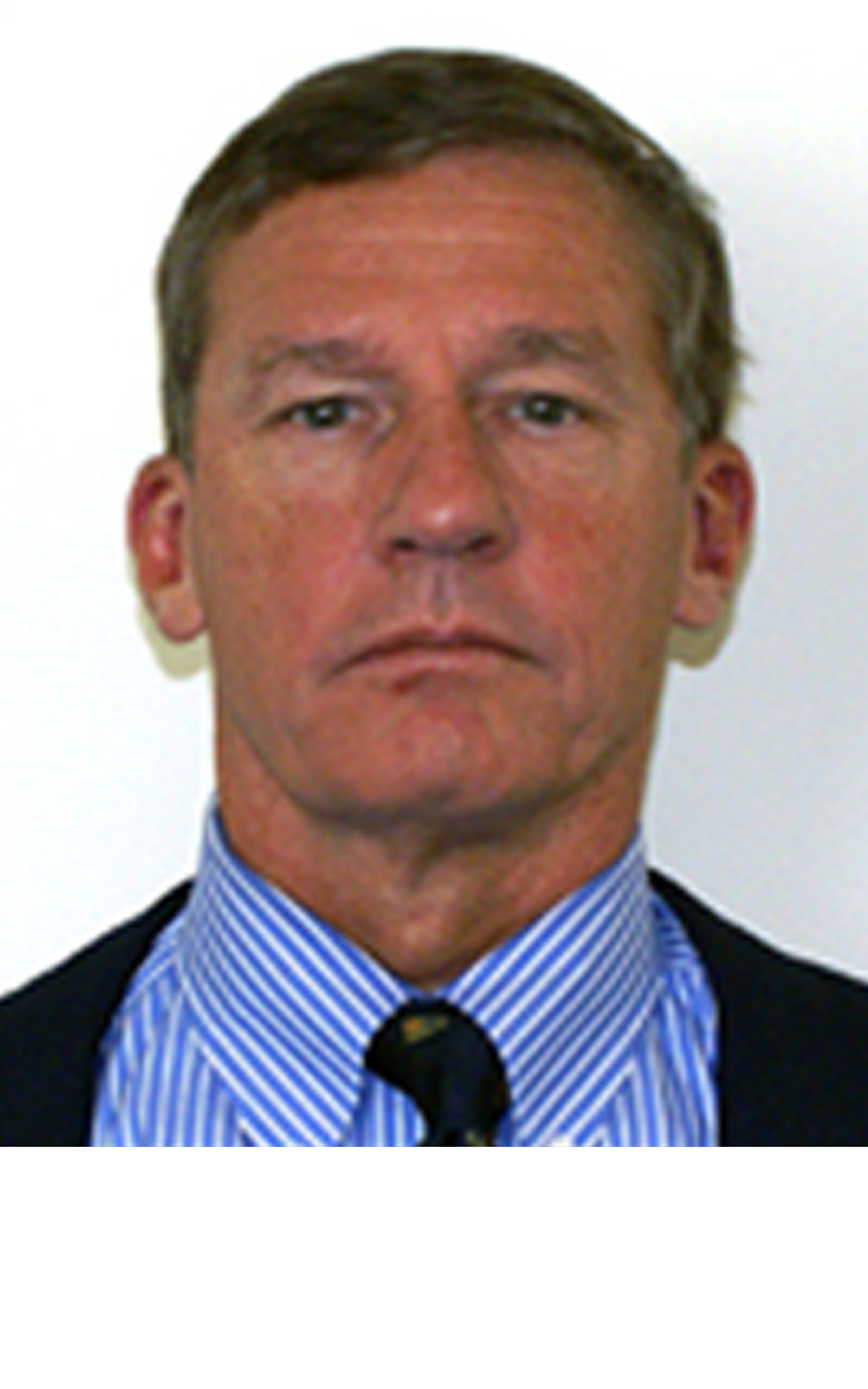
 Gordon O'Neill, Senior Research Fellow, CETO
Gordon O'Neill, Senior Research Fellow, CETO